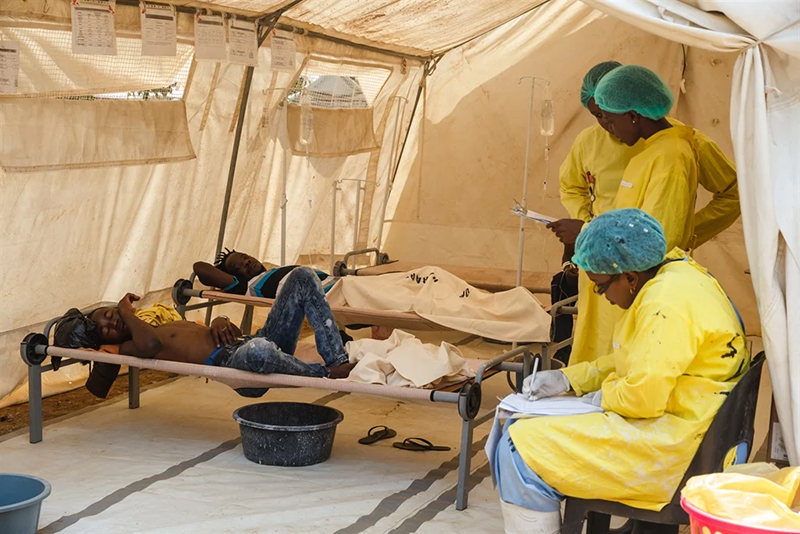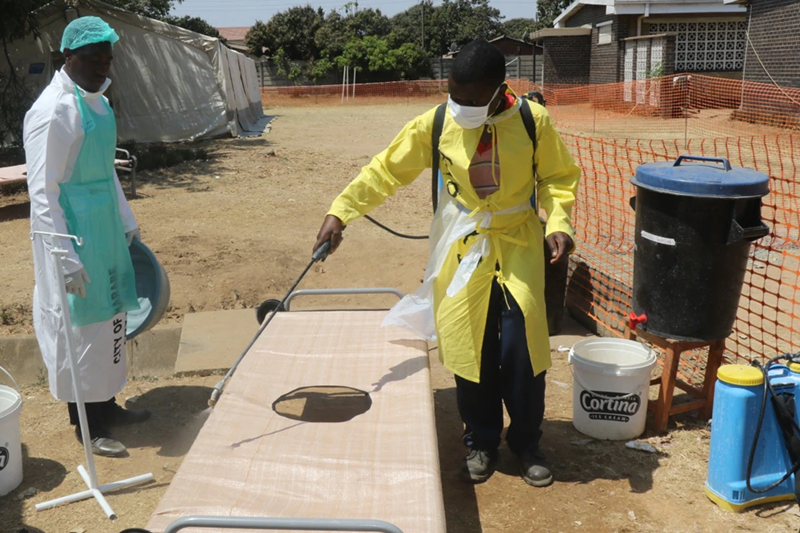- Featured
- No Comment
Diarrhoea hitting Zimbabwe’s young children hard – and that’s before the rains come

By News24.com
- About 44% of reported diarrhoea cases in Zimbabwe’s most recent count were among children under 5.
- The government blames poorly run local authorities, many of which are split between Zanu-PF and the CCC.
- Zimbabwe holds the record for Africa’s worst ever cholera outbreak.
Clean water shortages in townships across Zimbabwe and old, rusty water pipes could increase the severity of waterborne diseases as the rainy season, often characterised by flooding, approaches.
For Stanley Chuma, a vendor who rents a room in Cowdray Park, one of Bulawayo’s densely populated townships, the rains present a time bomb.
“In some sections, people are resorting to open wells because there’s been no water reaching us for more than two weeks.
“Imagine the dirt that you find in open sources. Rains will bring more dirty water to wells because, in some places, particularly in bushy areas, there’s open defecation,” he said.
Five litres of purified water cost about R38, he says, making it too expensive to cook with regularly. And some can’t afford to pay that much for drinking water either.
Sources from the local authority, the Bulawayo City Council (BCC), said the problem in Cowdray Park is a result of a pump failure, which was being fixed by the time of publication.
Things are worse in Harare, where some parts have gone for more than 20 years without clean running water.
In 2008, a devastating cholera outbreak in Zimbabwe set the record as Africa’s worst, with 4 200 dead.
READ | Cholera spreading fast in Zimbabwe, with funeral restrictions, calls to close schools

Cholera is now considered endemic in the capital, which struggles with obsolete water infrastructure, a ballooning population, severe droughts, and pervasive government corruption and mismanagement.
The most recent waterborne disease outbreak comes at a time when there’s political bickering in the government and local authorities between the ruling Zanu-PF and the main opposition, the Citizens Coalition for Change (CCC).
READ | Cholera spreading fast in Zimbabwe, with funeral restrictions, calls to close schools
President Emmerson Mnangagwa, writing in the state-controlled Sunday Mail, said the cholera situation was to be blamed on poorly run local authorities and the “government will not hesitate to intervene to protect lives as part of broad strategic interventions.”
He also vowed to drill 35 000 boreholes across the country before year end.
According to the Ministry of Health and Child Care’s weekly disease surveillance report released last week, cholera, typhoid, dysentery, and malaria are on the rise across the country.
For the week ending 8 October, the latest figures from the health ministry show 8 873 common diarrhoea cases and six deaths.
Of the reported cases, 3 863, or some 44%, were among children under 5 years of age.
The provinces that reported the highest number of cases were Mashonaland East Province, with 1 632, and Manicaland Province, with 1 386.
The ministry said there have been 275 385 cases and 208 deaths from common diarrhoea cumulatively.
